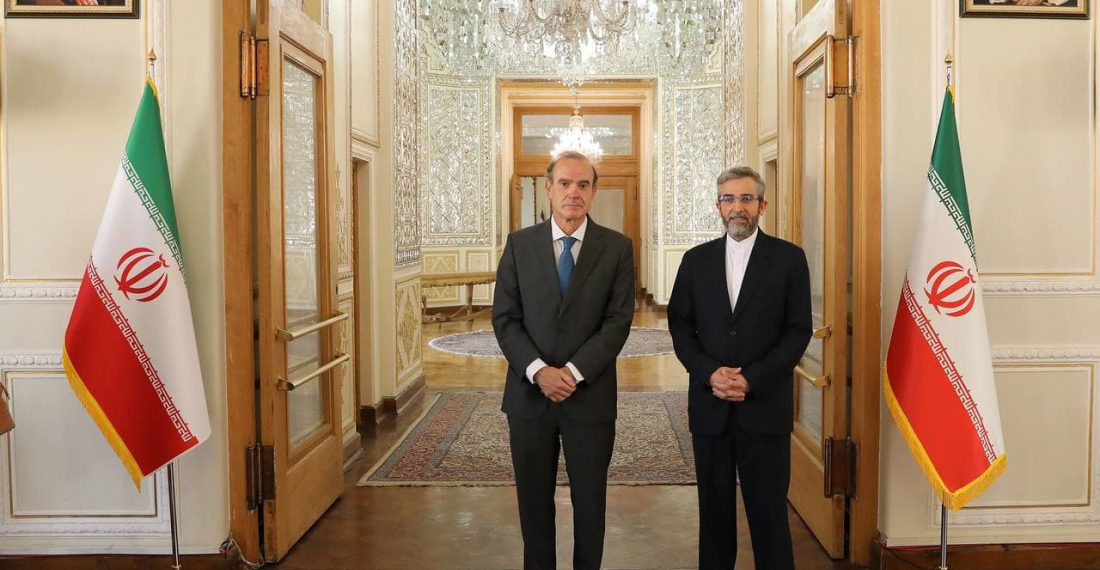Diplomatic and political sources in various capitals in Europe and the Middle East suggest that Iran may be ready to resume talks on the "nuclear file" in the coming days. A senior Iranian diplomat is expected in Brussels later this week for further discussions ahead of the resumption of the official negotiations in Vienna.
After a private meeting with Foreign Minister Hossein Amir-Abdollahian, Iranian MP Ahmad Alirezabeigui said “talks with the 4+1 Group will restart on Thursday in Brussels.” Another Iranian MP, Behrouz Mohebbi Najmabadi, said negotiations would resume “this week.”
The 4+1 Group consists of four UN Security Council permanent members — Britain, China, France and Russia — and Germany. They began negotiations with Iran in Vienna in April over reviving the 2015 Joint Comprehensive Plan of Action (JCPOA), the agreement with world powers to curb Iran’s nuclear program in return for lifting economic sanctions.
EU diplomatic chief Josep Borrell said at the weekend he was ready to meet Iranian leaders. “The goal remains to resume negotiations in Vienna as quickly as possible,” his spokesman said. An EU envoy, Enrique Mora, was in Tehran last week for talks with the Iranian Government







